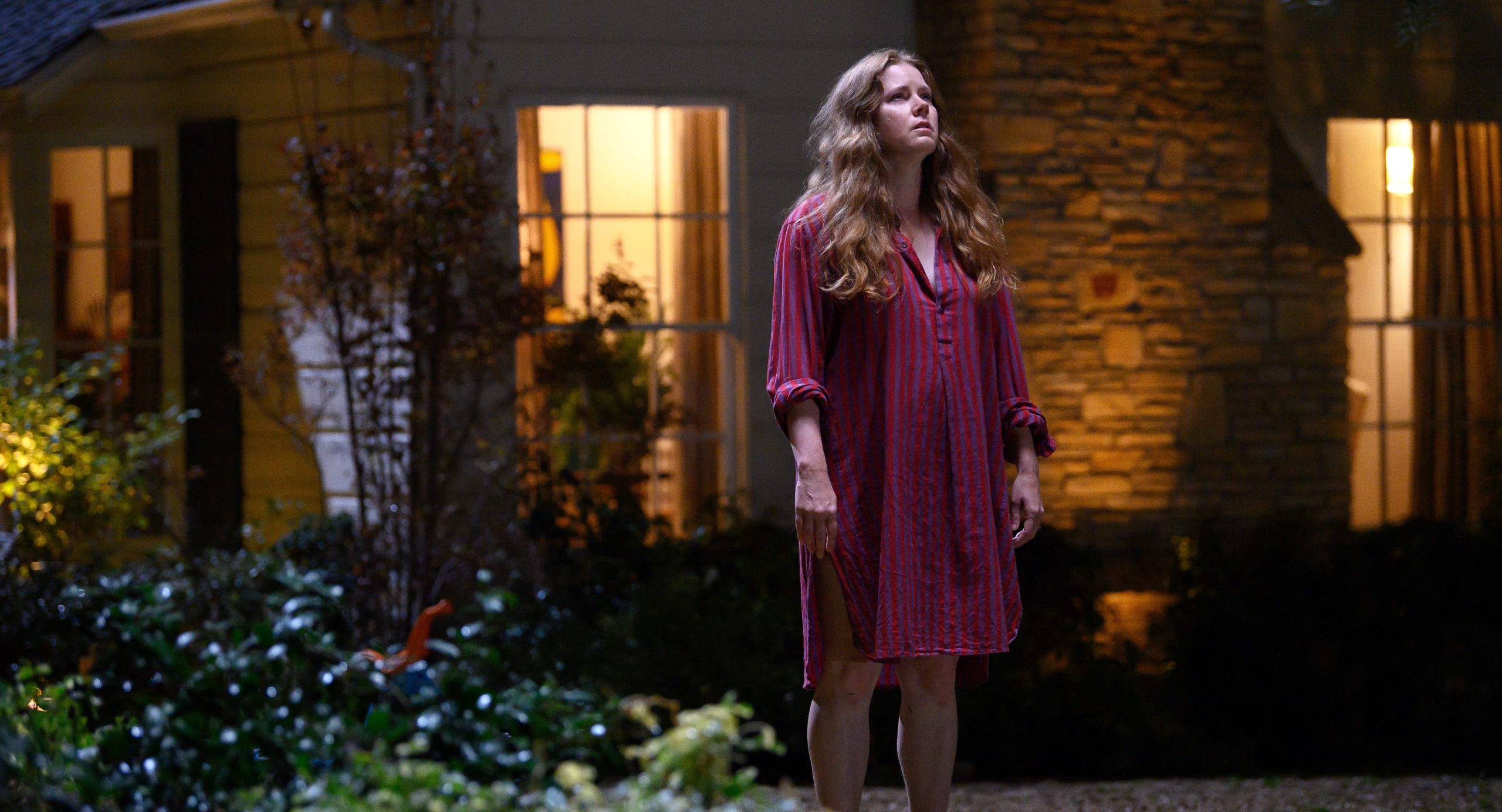Nightbitch – Film Review
Published December 5, 2024

Marielle Heller’s Nightbitch, adapted from Rachel Yoder’s 2021 novel of the same name, is a daring foray into the surreal territory of magical realism and black comedy. Anchored by a fearless performance from Amy Adams, the film examines the often-overlooked trials of motherhood through a bizarre yet oddly relatable lens. While its execution doesn’t always match its ambition, Nightbitch remains a fascinating and unconventional exploration of identity, primal instincts, and the sacrifices of parenthood.
The story follows a nameless stay-at-home mom, referred to only as “Mother” (Amy Adams), who struggles to adjust to the monotony of raising her young son (played by twins Arleigh and Emmett Snowden). Isolated and emotionally drained, she grapples with the societal pressure to devote herself entirely to her child while yearning for her former independence. Her husband (Scoot McNairy) is a workaholic who frequently travels for business, leaving her to manage the home and parenting alone.
One day, Mother notices strange changes in herself: sharp teeth, patches of fur, and an inexplicable urge to chase neighborhood squirrels. She begins to suspect she’s transforming into a dog—a manifestation of her unspoken frustrations and suppressed desires.
What follows is a darkly comedic and introspective journey as Mother embraces her transformation, balancing her newfound primal instincts with her responsibilities.
Amy Adams delivers a commanding and layered performance, embodying Mother’s vulnerability, rage, and humor with remarkable authenticity. Her descent into canine instincts is played with both physicality and subtlety, avoiding caricature while fully committing to the absurd premise. Adams captures the exhaustion and quiet desperation of a woman pushed to her limits, making her transformation feel less like a supernatural quirk and more like an organic outburst of repressed emotion.
Scoot McNairy, though relegated to a supporting role, provides a grounded counterpoint as Husband. His well-meaning but oblivious demeanor adds layers to the couple’s strained dynamic, highlighting the chasm between his work-focused life and her relentless domestic grind. The Snowden twins bring charm and naturalism to their roles as the couple’s young son, offering moments of levity and innocence amidst the chaos.
Heller deftly blends magical realism with biting satire, crafting a world where the surreal is treated with a matter-of-fact sensibility. The film’s strongest moments lie in its humor, often rooted in the absurdity of Mother’s situation. A scene where she chases a neighborhood cat in broad daylight or unapologetically howls at the moon offers laugh-out-loud moments that also carry emotional weight.
The film also excels in its exploration of the expectations placed on modern mothers. Through Lisa’s eccentric support group, Nightbitch critiques the performative nature of parenting, where success is measured in Pinterest-perfect birthday parties and Instagram-worthy milestones. The group’s rituals and dog-like tendencies provide a clever parallel to Mother’s transformation, blurring the line between societal expectations and primal instincts.
Despite its unique premise and strong performances, Nightbitch struggles with uneven pacing and a tendency to juggle too many themes. The film tackles identity, motherhood, marital dissatisfaction, and societal pressures, but not all are explored with equal depth.
Heller’s screenplay occasionally falters in its transitions between dark comedy and heartfelt drama, leaving some tonal shifts feeling jarring. While the surreal elements are compelling, they sometimes overshadow the more grounded aspects of Mother’s journey, creating a disjointed narrative.
Additionally, the third act veers into overly abstract territory, with a climactic sequence that feels more symbolic than narratively satisfying. While this approach aligns with the magical realism genre, it may leave some viewers craving a clearer resolution.
Cinematographer Brandon Trost employs a rich color palette to reflect Mother’s psychological state, shifting from muted tones during her domestic drudgery to vibrant hues as she embraces her transformation. The use of dreamlike imagery, such as a recurring motif of glowing canine eyes in the dark, adds an otherworldly charm.
At its core, Nightbitch is a cathartic examination of motherhood’s challenges and contradictions. It acknowledges the sacrifices, isolation, and identity struggles faced by many mothers while celebrating their resilience and strength. By channeling these themes through a surreal and darkly comedic lens, Heller creates a film that is both entertaining and thought-provoking.
While Nightbitch doesn’t fully deliver on its ambitious premise, it remains a bold and memorable entry in the realm of magical realism. Amy Adams’s fearless performance and Marielle Heller’s inventive direction make it a worthwhile watch, even if the narrative occasionally loses focus.
With its blend of humor, heart, and surrealism, Nightbitch offers a fresh perspective on the complexities of motherhood. Though not perfect, it’s a film that dares to howl where others might whimper.
